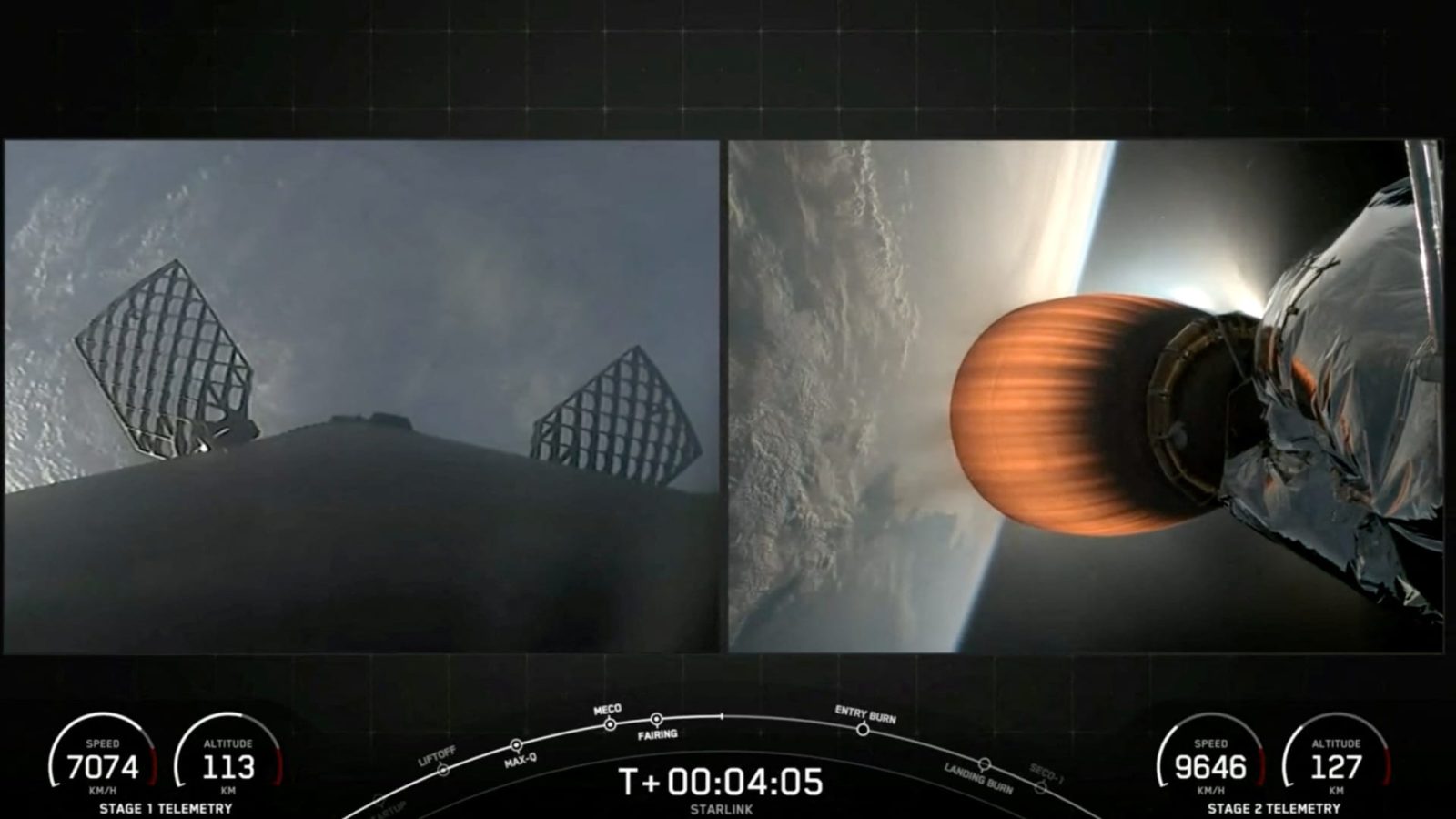SpaceX’s Falcon 9 rocket is grounded, pending an incident investigation, after an inflight failure — a rare misfire for the company’s workhorse vehicle.
The mission, known as “Starlink Group 9-3,” launched from California’s Vandenberg Space Force Base on Thursday evening and was carrying 20 satellites bound for low Earth orbit.
The rocket’s lower first stage, or booster, operated as expected before returning to land. But the rocket’s upper second stage failed to reignite its engine as planned and was destroyed, SpaceX CEO Elon Musk confirmed.
“Upper stage restart to raise perigee resulted in an engine RUD for reasons currently unknown,” Musk wrote in a post on social media. RUD, or “rapid unscheduled disassembly,” is a term SpaceX uses to refer to an explosive or destructive event. The company said in a later update that the engine failure came after a leak of liquid oxygen in the second stage.
Falcon 9 is grounded until the Federal Aviation Administration signs off on SpaceX’s investigation of the incident, the federal regulator confirmed.
“The FAA will be involved in every step of the investigation process and must approve SpaceX’s final report, including any corrective actions,” the agency said in a statement to CNBC.
The Starlink mission was the 69th Falcon 9 launch of the year — with the company averaging a blistering pace of a launch every two to three days in 2024 — but the investigation will likely delay launches planned in the weeks ahead, including two crewed missions: The private Polaris Dawn and NASA’s Crew-9.
Sign up here to receive weekly editions of CNBC’s Investing in Space newsletter.
SpaceX still deployed the 20 Starlink satellites but noted that the second stage engine failure means the satellites were in “a lower than intended orbit.” In an update Friday afternoon, the company said it made contact with 10 of the satellites in an effort to use the satellites onboard thrusters to climb higher in orbit.
Despite the attempted recovery, SpaceX confirmed that the “enormously high-drag environment” from being in the wrong, lower orbit means the satellites will not be recovered. The 20 satellites will re-enter the Earth’s atmosphere and burn up.
“They do not pose a threat to other satellites in orbit or to public safety,” the company wrote in a statement on its website.
Falcon 9 has been on an unrivaled run of success for nearly a decade, chocking up more than 300 consecutive successful orbital launches since its previous inflight failure in June 2015, during the NASA cargo mission CRS-7.
In total, SpaceX’s Falcon 9 has launched 354 missions to orbit, with more than 300 of those featuring successful landings and resulting in the reuse of rocket boosters more than 280 times.
Read the full article here









Leave a Reply